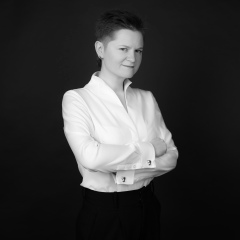Не в первый раз порываюсь написать, а потом сам себя останавливаю. Но сегодня стал в очередной раз свидетелем обсуждения так называемого «бунта из-за сыра с плесенью» и не могу больше держаться ))) Помните, я не так давно писал пост о том, что меня бесит? С недавних пор в тот перечень можно добавить слова «Ну, ничего. Раньше ведь без этого как-то жили, и ничего!».
Сначала меня забавляло, как люди, произносящие эти слова, одновременно говорят о прогрессе и развитии внутри страны. «Нам не дают «Мистрали»? Ну, ничего, без них ведь как-то жили. Сами построим...». Зачем ты хочешь их строить, если и без них нормально жили? Для чего миллиардные вложения в ту сферу, которую ты сам же считаешь бесполезной? «Зачем нам эти пармезаны-моцареллы? И без них ведь как-то жили, и ничего. А вот в Новосибирске завод на всю страну готов моцареллу поставлять!». Спрашивается – зачем ты хочешь, чтобы новосибирский завод производил то, в чём ты не видишь смысла? Для чего нам вообще какие-то технологии и новые товары? Без них ведь как-то раньше жили, и ничего… Это мне напоминает мини-комикс, в котором показаны художники разных эпох (ХХ век, Эпоха Возрождения, Средневековье, Античность и т.п.), мечтающие овладеть живописью на уровне старых мастеров, а последним кадром был изображен пещерный человек, очень довольный своим рисунком кабана на камне.
Затем, когда я понял, что особенно ретиво советуют отказываться от своих, в первую очередь, гастрономических привычек те, кто раньше и не потреблял отсутствующие ныне продукты, меня это стало раздражать. Мой папа часто характеризовал подобных людей русской поговоркой: «Слаще морковки ничего в жизни не видел, так по мёду и не грустит». А мне, действительно, нравились те продукты, которых теперь нет. Это не значит, что нет их заменителей (или условных заменителей). Но почему я должен соглашаться на что-то заведомо худшее, если ни в чем не виноват? Возможно, про таких требовательных, как я в голову приходит другая поговорка: «В хлеву родились, по-господски кашляют», но это совершенно из другой оперы.
И уж совсем стало бесить, когда слова «И без этого можно обойтись» и призывы к смирению начали появляться к месту и не к месту. Коллега сокрушается, что из-за роста курса валют теперь вряд ли сможет провести новогодний отпуск с семьёй в Европе, а его жена так об этом мечтала. Его сотрудник успокаивает: «Ну, ничего. В советские годы вообще заграницу мало кто ездил». Ёлки-палки, какая связь?! Вот уж точно «В огороде бузина, а в Киеве – дядька»! Почему из-за того, что когда-то было существенно хуже, чем сейчас, я должен спокойно относиться к тому, что сейчас стало хуже, чем было год назад?
И я, и мой отец в одну и ту же поездку оказались впервые на зарубежном пляже. Мне тогда было лет 18-19, папе, наверное, только пошёл шестой десяток. Прежде у нашей семьи не было возможности отдохнуть на курорте Турции или Египта. С тех пор и я, и он неоднократно побывали в зарубежных поездках (и пляжный туризм, и экскурсионный отдых, и даже по работе). Прямо сейчас нам обоим нужно всерьёз задуматься о целесообразности расходов на заграничную поездку. Так значит ли это, что мне теперь можно до моих 50 лет не шибко-то размышлять о заграничном отдыхе? И лишь из-за того, что когда-то прежде люди и мечтать об этом не могли?
В общем, резюмируя, хочу отметить: я люблю сыр с плесенью. Мне нравится и Рокфор, и Дор Блю, и Камамбер с Бри. Я люблю моцареллу и скучаю по капрезе и другим салатам с нею. Мне не хватает голландского картофеля и ряда других овощей. Конечно, этого недостаточно ни мне, ни другим «скучающим» для того, чтобы выйти на улицы, и «бунт из-за сыра с плесенью», как его часто называют, вряд ли произойдёт. Просто грустно то, что стремление к лучшему сейчас начинают высмеивать, как раньше высмеивали статус «интеллигента».
Сначала меня забавляло, как люди, произносящие эти слова, одновременно говорят о прогрессе и развитии внутри страны. «Нам не дают «Мистрали»? Ну, ничего, без них ведь как-то жили. Сами построим...». Зачем ты хочешь их строить, если и без них нормально жили? Для чего миллиардные вложения в ту сферу, которую ты сам же считаешь бесполезной? «Зачем нам эти пармезаны-моцареллы? И без них ведь как-то жили, и ничего. А вот в Новосибирске завод на всю страну готов моцареллу поставлять!». Спрашивается – зачем ты хочешь, чтобы новосибирский завод производил то, в чём ты не видишь смысла? Для чего нам вообще какие-то технологии и новые товары? Без них ведь как-то раньше жили, и ничего… Это мне напоминает мини-комикс, в котором показаны художники разных эпох (ХХ век, Эпоха Возрождения, Средневековье, Античность и т.п.), мечтающие овладеть живописью на уровне старых мастеров, а последним кадром был изображен пещерный человек, очень довольный своим рисунком кабана на камне.
Затем, когда я понял, что особенно ретиво советуют отказываться от своих, в первую очередь, гастрономических привычек те, кто раньше и не потреблял отсутствующие ныне продукты, меня это стало раздражать. Мой папа часто характеризовал подобных людей русской поговоркой: «Слаще морковки ничего в жизни не видел, так по мёду и не грустит». А мне, действительно, нравились те продукты, которых теперь нет. Это не значит, что нет их заменителей (или условных заменителей). Но почему я должен соглашаться на что-то заведомо худшее, если ни в чем не виноват? Возможно, про таких требовательных, как я в голову приходит другая поговорка: «В хлеву родились, по-господски кашляют», но это совершенно из другой оперы.
И уж совсем стало бесить, когда слова «И без этого можно обойтись» и призывы к смирению начали появляться к месту и не к месту. Коллега сокрушается, что из-за роста курса валют теперь вряд ли сможет провести новогодний отпуск с семьёй в Европе, а его жена так об этом мечтала. Его сотрудник успокаивает: «Ну, ничего. В советские годы вообще заграницу мало кто ездил». Ёлки-палки, какая связь?! Вот уж точно «В огороде бузина, а в Киеве – дядька»! Почему из-за того, что когда-то было существенно хуже, чем сейчас, я должен спокойно относиться к тому, что сейчас стало хуже, чем было год назад?
И я, и мой отец в одну и ту же поездку оказались впервые на зарубежном пляже. Мне тогда было лет 18-19, папе, наверное, только пошёл шестой десяток. Прежде у нашей семьи не было возможности отдохнуть на курорте Турции или Египта. С тех пор и я, и он неоднократно побывали в зарубежных поездках (и пляжный туризм, и экскурсионный отдых, и даже по работе). Прямо сейчас нам обоим нужно всерьёз задуматься о целесообразности расходов на заграничную поездку. Так значит ли это, что мне теперь можно до моих 50 лет не шибко-то размышлять о заграничном отдыхе? И лишь из-за того, что когда-то прежде люди и мечтать об этом не могли?
В общем, резюмируя, хочу отметить: я люблю сыр с плесенью. Мне нравится и Рокфор, и Дор Блю, и Камамбер с Бри. Я люблю моцареллу и скучаю по капрезе и другим салатам с нею. Мне не хватает голландского картофеля и ряда других овощей. Конечно, этого недостаточно ни мне, ни другим «скучающим» для того, чтобы выйти на улицы, и «бунт из-за сыра с плесенью», как его часто называют, вряд ли произойдёт. Просто грустно то, что стремление к лучшему сейчас начинают высмеивать, как раньше высмеивали статус «интеллигента».
Not for the first time I try to write, and then I stop myself. But today I once again witnessed the discussion of the so-called "riot over moldy cheese" and I can't hold on any longer))) Remember, I recently wrote a post about what infuriates me? Recently, the words “Well, nothing. Earlier we somehow lived without it, and nothing! ".
At first it amused me how people who utter these words simultaneously talk about progress and development within the country. “They don't give us the Mistral? Well, nothing, we somehow lived without them. We will build it ourselves ... ". Why do you want to build them, if you lived normally without them? Why are billions of dollars invested in the area that you yourself consider useless? “Why do we need these mozzarella parmesans? And without them we somehow lived, and nothing. But in Novosibirsk the plant is ready to supply mozzarella to the whole country! " The question is - why do you want the Novosibirsk plant to produce what you do not see the point in? Why do we need any technologies and new products at all? After all, we somehow lived without them, and nothing ... It reminds me of a mini-comic strip, which shows artists from different eras (XX century, Renaissance, Middle Ages, Antiquity, etc.), dreaming of mastering painting at the level of old masters, and the last shot showed a caveman, very pleased with his drawing of a wild boar on a stone.
Then, when I realized that those who had not previously consumed the currently missing products were especially zealous advised to give up their, first of all, gastronomic habits, it began to annoy me. My dad often characterized such people with a Russian proverb: "I have never seen anything sweeter than carrots, so he is not sad for honey." And I really liked those products that are no longer there. This does not mean that there are no substitutes for them (or conditional substitutes). But why should I settle for something obviously worse if I'm not guilty of anything? Perhaps, about such demanding people like me, another saying comes to mind: “They were born in the barn, they cough like a master,” but this is from a completely different opera.
And it really began to enrage when the words "And you can do without it" and appeals to humility began to appear out of place and out of place. A colleague laments that due to the rise in the exchange rate, he is now unlikely to be able to spend New Year's holidays with his family in Europe, and his wife dreamed about it so much. His employee soothes: “Well, nothing. In Soviet times, few people traveled abroad in general. " Christmas trees, sticks, what's the connection ?! That's for sure "There is an elder in the garden, and there is an uncle in Kiev"! Why, due to the fact that once it was significantly worse than now, should I be calm about the fact that now it is worse than it was a year ago?
Both me and my father were on the same trip for the first time on a foreign beach. I was 18-19 years old then, my dad was probably just in his sixties. Before, our family had no opportunity to relax in a resort in Turkey or Egypt. Since then, he and I have repeatedly visited foreign trips (and beach tourism, and sightseeing holidays, and even at work). Right now, we both need to seriously consider the feasibility of spending on an overseas trip. So does this mean that now, until my 50 years old, I can not think too much about overseas vacations? And only because once before people could not even dream about it?
In general, in summary, I want to note: I love blue cheese. I like Roquefort, Dor Blue, Camembert and Bree. I love mozzarella and miss caprese and other salads with it. I am missing Dutch potatoes and several other vegetables. Of course, this is not enough for me or for other "bored" ones to take to the streets, and the "moldy cheese riot", as it is often called, is unlikely to happen. It's just sad that the striving for the best is now beginning to ridicule, as they used to ridicule the status of an "intellectual".
At first it amused me how people who utter these words simultaneously talk about progress and development within the country. “They don't give us the Mistral? Well, nothing, we somehow lived without them. We will build it ourselves ... ". Why do you want to build them, if you lived normally without them? Why are billions of dollars invested in the area that you yourself consider useless? “Why do we need these mozzarella parmesans? And without them we somehow lived, and nothing. But in Novosibirsk the plant is ready to supply mozzarella to the whole country! " The question is - why do you want the Novosibirsk plant to produce what you do not see the point in? Why do we need any technologies and new products at all? After all, we somehow lived without them, and nothing ... It reminds me of a mini-comic strip, which shows artists from different eras (XX century, Renaissance, Middle Ages, Antiquity, etc.), dreaming of mastering painting at the level of old masters, and the last shot showed a caveman, very pleased with his drawing of a wild boar on a stone.
Then, when I realized that those who had not previously consumed the currently missing products were especially zealous advised to give up their, first of all, gastronomic habits, it began to annoy me. My dad often characterized such people with a Russian proverb: "I have never seen anything sweeter than carrots, so he is not sad for honey." And I really liked those products that are no longer there. This does not mean that there are no substitutes for them (or conditional substitutes). But why should I settle for something obviously worse if I'm not guilty of anything? Perhaps, about such demanding people like me, another saying comes to mind: “They were born in the barn, they cough like a master,” but this is from a completely different opera.
And it really began to enrage when the words "And you can do without it" and appeals to humility began to appear out of place and out of place. A colleague laments that due to the rise in the exchange rate, he is now unlikely to be able to spend New Year's holidays with his family in Europe, and his wife dreamed about it so much. His employee soothes: “Well, nothing. In Soviet times, few people traveled abroad in general. " Christmas trees, sticks, what's the connection ?! That's for sure "There is an elder in the garden, and there is an uncle in Kiev"! Why, due to the fact that once it was significantly worse than now, should I be calm about the fact that now it is worse than it was a year ago?
Both me and my father were on the same trip for the first time on a foreign beach. I was 18-19 years old then, my dad was probably just in his sixties. Before, our family had no opportunity to relax in a resort in Turkey or Egypt. Since then, he and I have repeatedly visited foreign trips (and beach tourism, and sightseeing holidays, and even at work). Right now, we both need to seriously consider the feasibility of spending on an overseas trip. So does this mean that now, until my 50 years old, I can not think too much about overseas vacations? And only because once before people could not even dream about it?
In general, in summary, I want to note: I love blue cheese. I like Roquefort, Dor Blue, Camembert and Bree. I love mozzarella and miss caprese and other salads with it. I am missing Dutch potatoes and several other vegetables. Of course, this is not enough for me or for other "bored" ones to take to the streets, and the "moldy cheese riot", as it is often called, is unlikely to happen. It's just sad that the striving for the best is now beginning to ridicule, as they used to ridicule the status of an "intellectual".

У записи 48 лайков,
8 репостов.
8 репостов.
Эту запись оставил(а) на своей стене Виктор Кириллов


![Veronica Dream [♀+♂=♥] Veronica Dream [♀+♂=♥]](https://sun9-85.vkuserphoto.ru/impg/c10198/u61975/d_6be896dc.jpg?quality=96&as=32x32,48x48,72x72&sign=ddee6d536dd9397597167c435809a173&u=SQfv8NPIRczT9NApTDFe8MAq4Z_uPQ3_Of2wrrDdXBo&cs=200x200)


































































